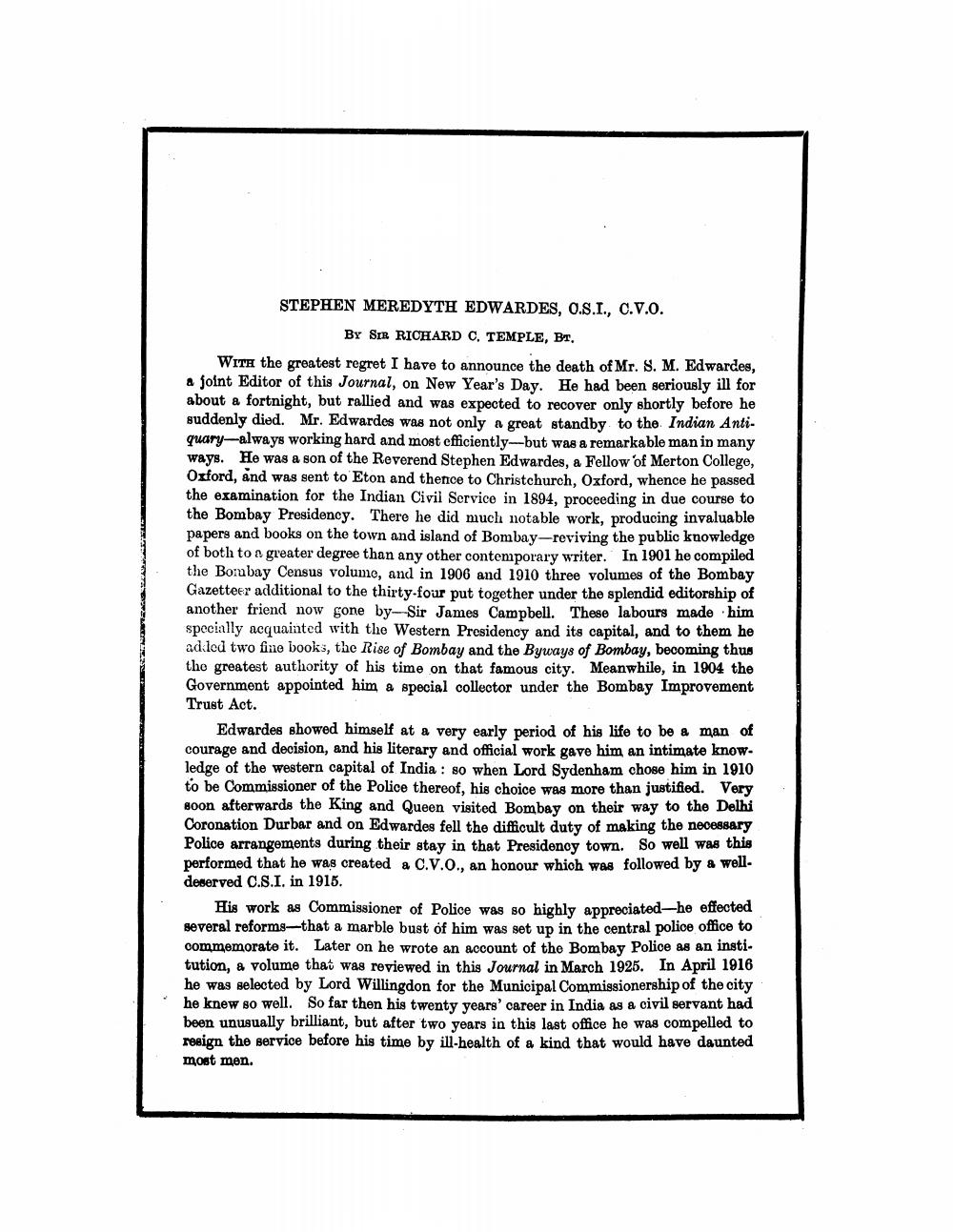________________
STEPHEN MEREDYTH EDWARDES, O.S.I., C.V.O.
BY SIR RICHARD C. TEMPLE, Br, WITH the greatest regret I have to announce the death of Mr. S. M. Edwardes, a joint Editor of this Journal, on New Year's Day. He had been seriously ill for about a fortnight, but rallied and was expected to recover only shortly before he suddenly died. Mr. Edwardes was not only a great standby to the Indian Antiquary-always working hard and most efficiently--but was a remarkable man in many ways. He was a son of the Reverend Stephen Edwardes, a Fellow of Merton College, Oxford, and was sent to Eton and thence to Christchurch, Oxford, whence he passed the examination for the Indian Civil Service in 1894, proceeding in due course to the Bombay Presidency. There he did much notable work, producing invaluable papers and books on the town and island of Bombay-reviving the public knowledge of both to a greater degree than any other contemporary writer. In 1901 he compiled the Bombay Census volumo, and in 1906 and 1910 three volumes of the Bombay Gazetteer additional to the thirty-four put together under the splendid editorship of another friend now gone by-Sir James Campbell. These labours made him specially acquainted with the Western Presidency and its capital, and to them he ad led two fine books, the Rise of Bombay and the Byways of Bombay, becoming thus the greatest authority of his time on that famous city. Meanwhile, in 1904 the Government appointed him a special collector under the Bombay Improvement Trust Act.
Edwardes showed himself at a very early period of his life to be a man of courage and decision, and his literary and official work gave him an intimate knowledge of the western capital of India : 80 when Lord Sydenham chose him in 1910 to be Commissioner of the Police thereof, his choice was more than justified. Very soon afterwards the King and Queen visited Bombay on their way to the Delhi Coronation Durbar and on Edwardes fell the difficult duty of making the necessary Police arrangements during their stay in that Presidenoy town. So well was this performed that he was created a C.V.O., an honour which was followed by a welldeserved C.S.I. in 1915.
His work as Commissioner of Police was so highly appreciated-he effected several reforms-that a marble bust of him was set up in the central police office to commemorate it. Later on he wrote an account of the Bombay Police as an insti. tution, & volume that was reviewed in this Journal in March 1925. In April 1916 he was selected by Lord Willingdon for the Municipal Commissionership of the city he knew so well. So far then his twenty years' career in India as a civil servant had been unusually brilliant, but after two years in this last office he was compelled to resign the service before his time by ill-health of a kind that would have daunted most men.




